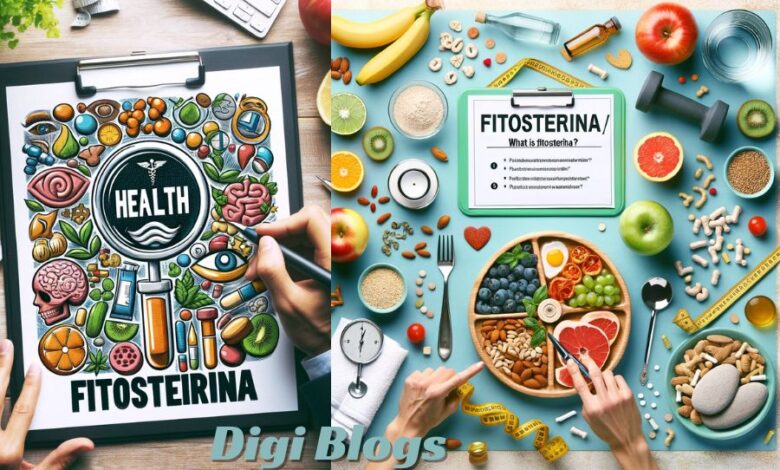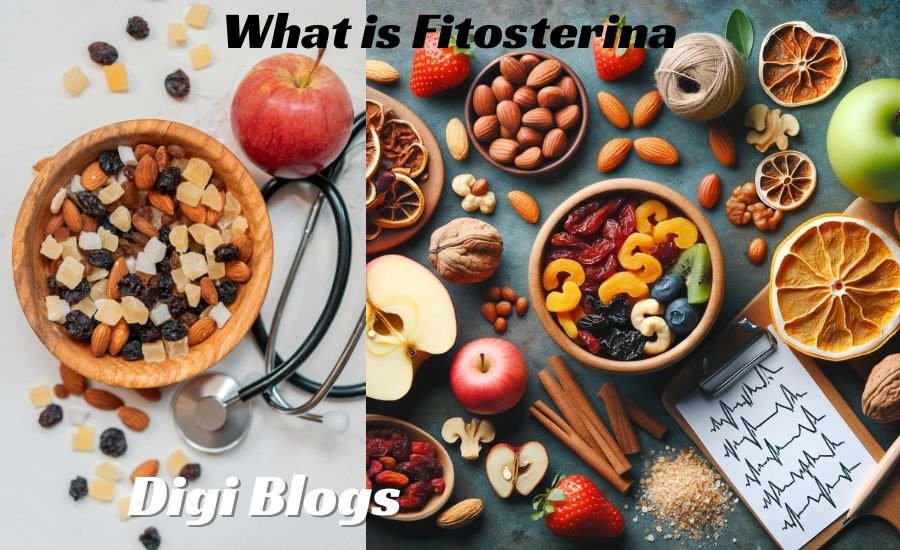What is Fitosterina? Unlocking Nature’s Wellness Secret
Introduction to Fitosterina

In the realm of health and wellness, countless terms and concepts often remain hidden gems waiting to be discovered. One such enigmatic term is “fitosterina.” While it may not be a household name, fitosterina holds the promise of unlocking nature’s wellness secret. This article embarks on a journey to explore the depths of fitosterina, revealing its origins, health benefits, and potential applications in our quest for a healthier life.
The Origins of Fitosterina
Before delving into the health aspects, it’s essential to understand the origins of fitosterina. At its core, fitosterina is a plant-derived compound primarily found in fruits, vegetables, nuts, and seeds. This natural substance has piqued the interest of researchers and health enthusiasts alike for its potential to impact our well-being positively.
Fitosterina’s Role in Health
Fitosterina is more than just a botanical compound; it’s a wellness ally. Its primary role revolves around promoting cardiovascular health. Research suggests that fitosterina may help reduce levels of harmful LDL cholesterol, contributing to a healthier heart. This revelation alone underscores its significance in the world of health.
The Power of Plant-Based Wellness
One of the most intriguing aspects of fitosterina is its source – plants. As we embrace the era of holistic health and plant-based diets, fitosterina emerges as a natural complement to our quest for well-being. It’s a testament to the idea that nature provides us with invaluable resources to enhance our health, all while minimizing the need for synthetic interventions.
Fitosterina and the Immune System
In our increasingly health-conscious society, the immune system takes centre stage. Fitosterina doesn’t disappoint in this regard either. Some studies suggest that it may have immunomodulatory properties, potentially aiding in immune system regulation. While more research is needed, this opens doors to exciting possibilities for harnessing fitosterina’s potential.
Fitosterina Supplements: A Health Trend?
With the growing popularity of dietary supplements, it’s no surprise that fitosterina has also made its way into the supplement market. Fitosterina supplements, often derived from plant sources like saw palmetto and soy, are gaining attention for their potential to support prostate health in men. Exploring the effectiveness of these supplements is an ongoing area of research.
Fitosterina in Daily Life
Understanding the practical applications of fitosterina is vital for incorporating it into our daily lives. From incorporating fitosterina-rich foods into our diet to considering supplements under the guidance of healthcare professionals, the journey to harnessing its potential begins with awareness.

Fitosterina-Rich Foods: A Dietary Delight
Incorporating Fitosterina into Your Diet
One of the most accessible ways to embrace the potential benefits of fitosterina is through your diet. Many everyday foods are rich sources of this natural compound. Consider including nuts like almonds and walnuts, which are not only heart-healthy but also brimming with fitosterina. Avocado enthusiasts will be pleased to know that this creamy fruit is another excellent source. Additionally, you can explore whole grains like oats and barley, as well as legumes like lentils and chickpeas, to enhance your fitosterina intake. These wholesome options not only contribute to your overall nutrition but also introduce you to the wellness potential of fitosterina.
The Mediterranean Diet Connection
Fitosterina aligns harmoniously with the principles of the Mediterranean diet, known for its heart-healthy focus. This dietary pattern emphasizes the consumption of fruits, vegetables, nuts, and seeds – all rich in fitosterina. By embracing the Mediterranean diet, you not only nourish your body with essential nutrients but also embark on a journey toward better cardiovascular health. Fitosterina becomes a natural companion in this culinary adventure, highlighting its role in the broader landscape of dietary wellness.
Fitosterina and Hormone Health
A Closer Look at Fitosterina’s Impact on Hormones
While fitosterina’s association with heart health is well-documented, its role in hormone balance is an emerging area of interest. Some research suggests that fitosterina, particularly in the form of supplements like saw palmetto, may have the potential to support prostate health in men. This connection between fitosterina and hormonal well-being underscores its versatility as a natural wellness agent. However, it’s essential to approach such supplements with caution and seek guidance from healthcare professionals for a comprehensive understanding of their effects.
Fitosterina and Women’s Health
Beyond its implications for prostate health, fitosterina may also hold relevance in women’s health. Some studies explore its potential role in managing menopausal symptoms, such as hot flashes. As researchers delve deeper into these areas, we gain insights into how fitosterina could contribute to a more balanced and comfortable transition through life’s stages. While the science is still evolving, it’s an exciting avenue to watch for those interested in holistic approaches to health.
Conclusion: The Promise of Fitosterina
In conclusion, fitosterina may not be a term we encounter daily, but its potential impact on our health cannot be underestimated. As we navigate the complexities of modern life, the allure of natural wellness solutions becomes increasingly appealing. Fitosterina, with its roots in nature and its potential to enhance our well-being, stands as a testament to the power of botanical compounds in our quest for a healthier, more vibrant life.
Frequently Asked Questions (FAQs)
Q1: What is Fitosterina, and where does it come from?
Fitosterina is a natural compound found in plants, primarily in fruits, vegetables, nuts, and seeds.
Q2: What are the health benefits of Fitosterina?
Fitosterina is known for its potential to reduce harmful LDL cholesterol levels and may have immunomodulatory properties.
Q3: How can I incorporate Fitosterina into my diet?
You can include Fitosterina-rich foods in your diet, such as nuts, avocados, whole grains, and legumes.
Q4: Are Fitosterina supplements available?
Yes, Fitosterina supplements derived from plant sources like saw palmetto and soy are available and may support prostate health.
Q5: Is Fitosterina safe as a supplement?
Consult a healthcare professional before using Fitosterina supplements, especially if you have specific health concerns or take other medications.
Q6: Does Fitosterina follow a specific dietary pattern?
Fitosterina aligns well with the heart-healthy principles of the Mediterranean diet, which emphasizes Fitosterina-rich foods.
Q7: What is the connection between Fitosterina and hormone health?
Some research suggests that Fitosterina supplements, like saw palmetto, may support prostate health in men.
Q8: Does Fitosterina have relevance in women’s health?
Studies explore Fitosterina’s potential role in managing menopausal symptoms, but more research is needed to understand its effects on women’s health.




